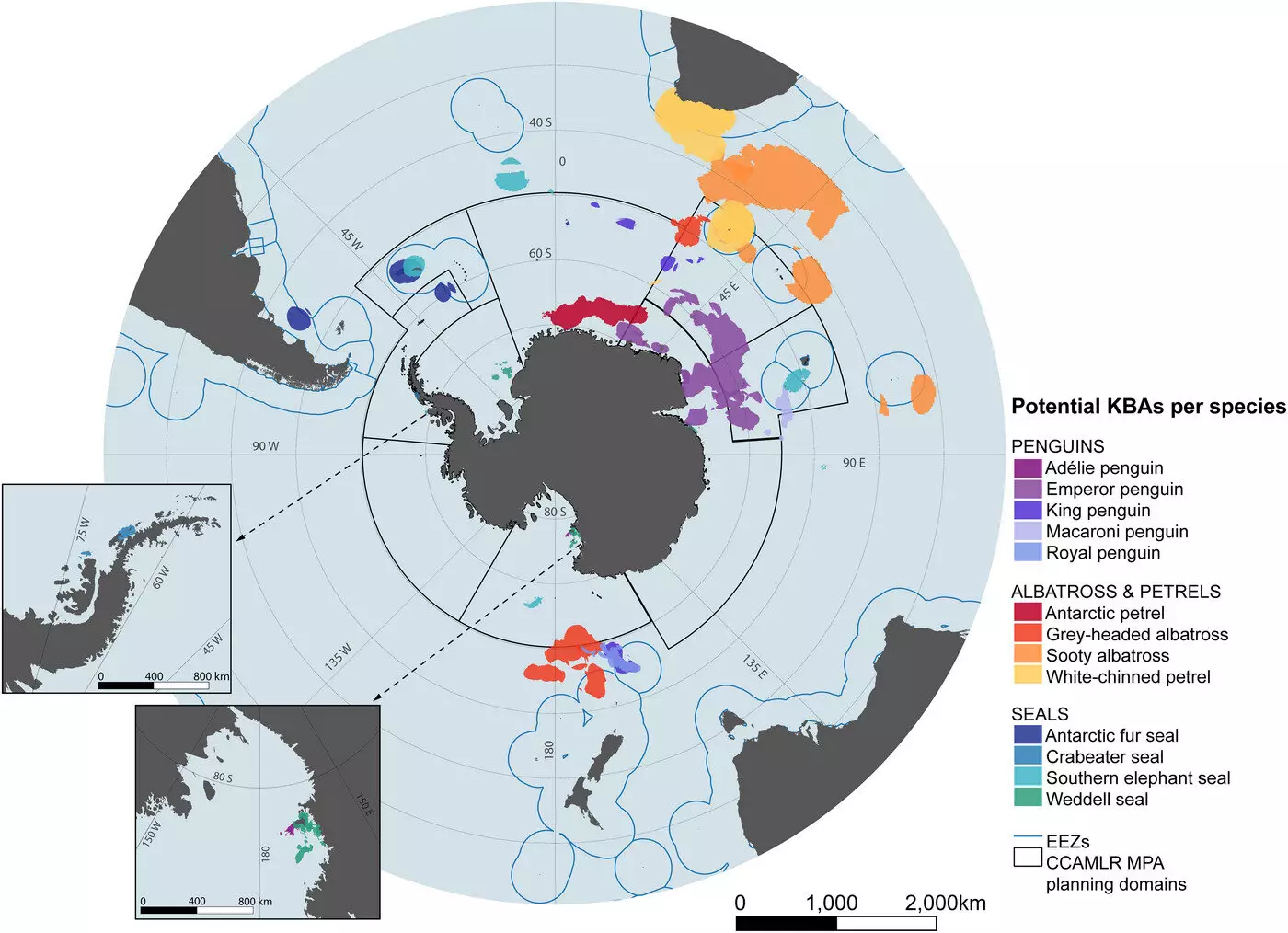

The Southern Ocean, surrounding Antarctica, is a region filled with unique and diverse wildlife that plays a crucial role in maintaining the Earth’s ecosystems. A recent study led by the University of Colorado Boulder has identified 30 new areas in the Southern Ocean that are critical for conserving biodiversity. Without greater protection in these areas, native wildlife could face significant population declines, impacting the delicate balance of the ecosystem.
While the remote location and harsh conditions of the Southern Ocean have historically protected biodiversity from human activities, climate change is causing sea ice to melt, leading to increased fishing and tourism in the region. These activities not only compete with wildlife for resources but also introduce invasive species and diseases that native wildlife may not be equipped to handle, potentially leading to population declines.
The team of researchers, led by Cassandra Brooks and Sarah Becker, set out to identify Key Biodiversity Areas (KBAs) in the Southern Ocean that are crucial for the survival of various species. By analyzing tracking data for 13 Antarctic and sub-Antarctic species, such as Adélie penguins, sooty albatrosses, and southern elephant seals, they were able to pinpoint 30 KBAs across the region. These sites serve as important habitats for foraging, breeding, and migration for a variety of species.
The study highlighted the importance of considering the specific needs of individual populations when developing conservation strategies. While previous large-scale efforts had identified important conservation zones in the Southern Ocean, they may have overlooked certain areas critical for certain species due to their unique life stages and migration patterns. By focusing on these specific habitats, the researchers were able to bridge the gap between broad-scale perspectives and the detailed needs of individual populations.
The researchers hope that international bodies and governments will take into account their findings when developing conservation strategies and determining areas where fishing should be restricted. By reducing human interactions, such as fishing and tourism, in key biodiversity areas, the native wildlife in the Southern Ocean may have a better chance of adapting and becoming resilient to the impacts of climate change.
The Southern Ocean serves as a crucial buffer against climate change, capturing a significant amount of human-generated carbon dioxide emissions and excess heat. The protection of biodiversity in this region not only benefits the wildlife that calls it home but also has far-reaching effects on the global climate. What happens in the Southern Ocean has implications for ecosystems around the world, highlighting the interconnected nature of our planet’s health.
The preservation of biodiversity in the Southern Ocean is of paramount importance in maintaining the delicate balance of our planet’s ecosystems. By identifying and protecting key areas that are critical for the survival of various species, we can work towards ensuring a sustainable future for both wildlife and the environment as a whole.
In the world of pharmaceuticals, innovation often hinges on finding new compounds that can lead…
In the heart of the Amazon basin, drastic climate changes present an alarming reality that…
Air fryers have rapidly surged in popularity, captivating home cooks and culinary enthusiasts alike. When…
In an era where technology and social media reign, the importance of sleep often takes…
In an era where environmental consciousness is paramount, the maritime industry has long been scrutinized…
Radionuclides, often relegated to discussions surrounding nuclear energy and radioactive waste, have far-ranging implications for…
This website uses cookies.